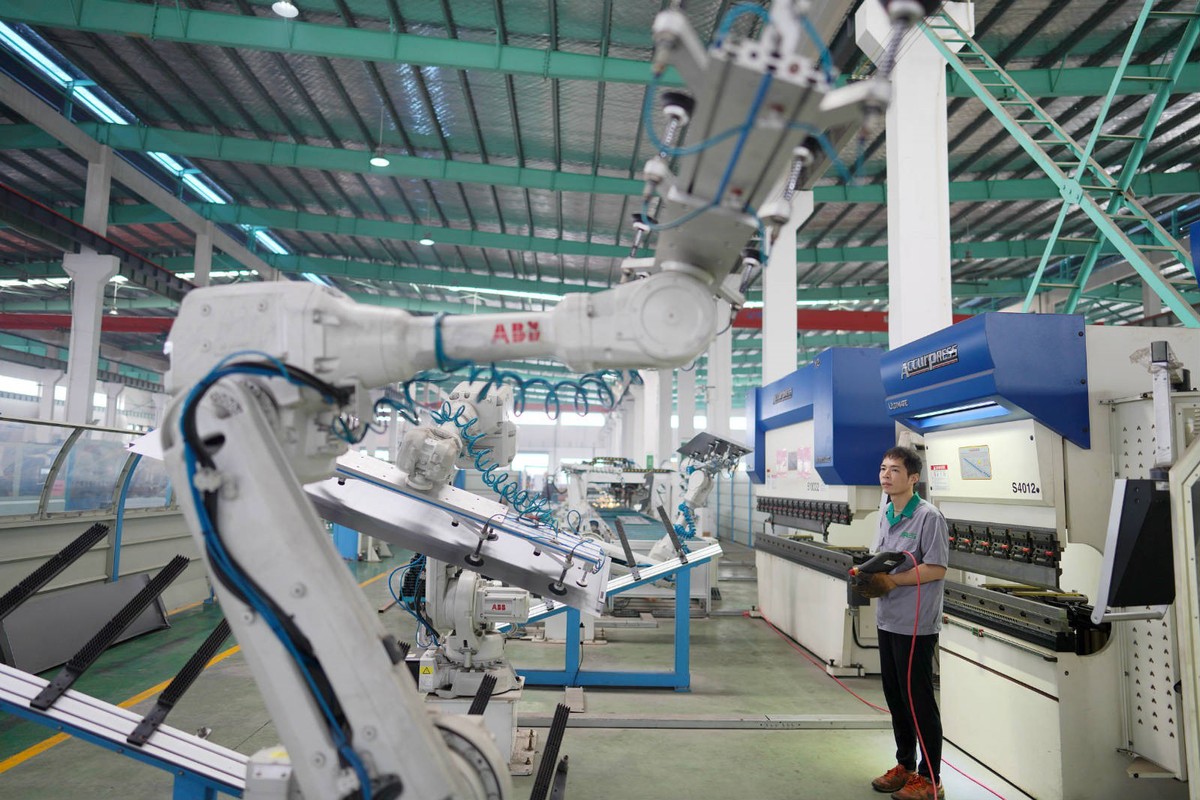Digitalization makes manufacturing smarter


Unmanned traveling cranes unloading steel coils at midnight – which is a normal scene at a hot galvanizing workshop of a cold rolling mill of Baoshan Iron & Steel Co Ltd (Baosteel), Shanghai.
The digitalized workshop, which needs no manual attendance, is able to operate automatically in the off hours, enabling the gigantic factory to function non-stop all day.
"The upgraded smart workshop can improve 30 percent of labor efficiency and 20 percent of capacity," said an employee of the cold rolling mill. Smart manufacturing has become a sharp weapon for enterprises to improve quality and efficiency, contributing to their stable operation during the COVID-19 epidemic.
The unmanned workshop is just a miniature of the accelerated digitalization of the Chinese manufacturing sector.
According to a white paper on the development of China's digital economy issued by China Academy of Information and Communications Technology (CAICT) on July 3, China's digital economy embraced development with greater depth and breadth last year, and witnessed further enhancement of digital technology's role in promoting the growth and efficiency of traditional industries. A total of 28.8 trillion yuan ($4.12 trillion) of added value was generated by industries through applying digital technologies, a nominal increase of 16.8% year-on-year.
Behind the 28.8-trillion-yuan performance is the in-depth integration of traditional industries and new technologies.
In Lvliang, North China's Shanxi province, the last 5G base station of Pangpangta Coal Mine was installed after three months of efforts made by the employees of China Unicom, one of the largest telecommunication carriers in China. At present, over 100 kilometers of the shafts at the coal mine are covered with 5G network.
The network largely improves the safety and efficiency of mining activities. "Thanks to the 5G network, we are now able to record videos in the shafts, manage our equipment and conduct smart analysis of the work. Smart mining is no longer a dream," said an employee of the Huozhou Coal and Electricity Group that runs the coal mine.
The new generation of information technology, including 5G and artificial intelligence, is not benefitting only the mining industry, but also the digitalization of many industrial sectors.
As of the end of 2019, 47.1 percent and 49.5 percent of the production equipment and key manufacturing procedures of Chinese enterprises above designated size had been digitalized, and 41 percent of these enterprises' digital devices had been connected to the internet. Besides, digital R&D and design tools accounted for 69.3 percent of the total in industrial enterprises. Such performance offered strong support for the in-depth digital transformation of the manufacturing sector.
Behind the 28.8-trillion-yuan performance is the released potential for digital transformation of small and medium-sized enterprises.




































